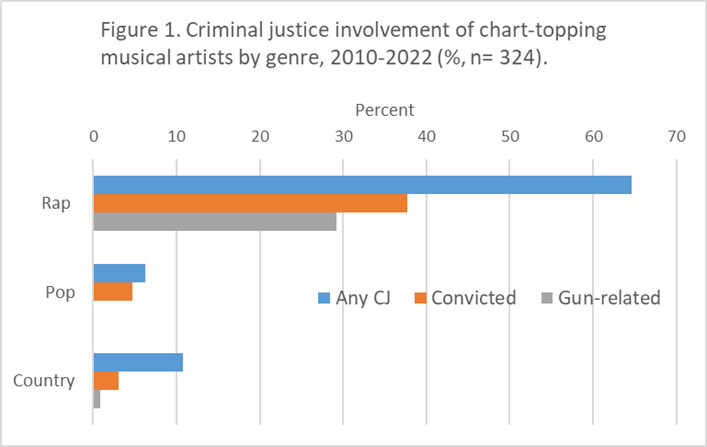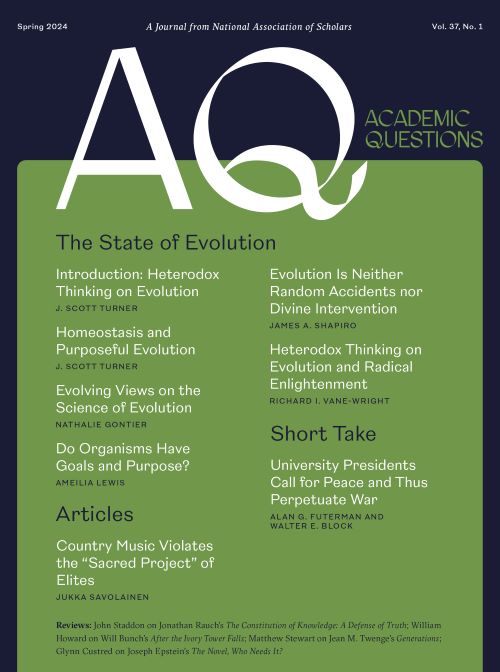Along with millions of other Americans, I tuned in last year to watch the early-season college football game between University of Colorado and Colorado State. Not my usual cup of tea, but I was caught up in the hype surrounding “Coach Prime”—the charismatic NFL legend Deion Sanders, whose first year at the helm of CU Buffaloes was off to a spectacular start.
The stadium at Boulder was littered with major celebrities, including the rapper Lil Wayne and the actor Dwayne Johnson (aka “The Rock”). The ESPN broadcast featured a sideline interview of a gentleman who goes by the name of Offset. Since I had never heard of this particular celebrity, I decided to look him up. Turns out Mr. Offset (née Kiari Kendrell Cephus) is a former member of Migos, the incredibly successful hip-hop group, and the husband of Cardi B, the Grammy-winning rap artist.
A closer view of Offset’s biography revealed that, perhaps unsurprisingly, he has been embroiled in numerous legal troubles and other controversies. In 2018, Offset was criticized for an anti-gay lyric (“I cannot vibe with queers”). His criminal involvements include felony convictions for burglary, robbery, and “inciting a riot within a penal facility.” Over the years, he has been charged with numerous firearm and gang related crimes.
What’s my point? Call me a prude but I felt uncomfortable with the reality that an individual with such remarkably predatory tendencies was treated as a revered celebrity in the contexts of a family-friendly national TV broadcast. My discomfort was aggravated by cognitive dissonance as I considered the severity of Offset’s criminal conduct against the transgressions by Jason Aldean and Oliver Anthony. I am, of course, referring to the two country music singers whose songs animated a great deal of outrage last summer.
Country-Fried Controversies
In “Try That in a Small Town,” Jason Aldean sings in praise of communities characterized by high collective efficacy, i.e., the capacity to intervene in situations of crime and disorder. The lyric goes through a number of scenarios of undesirable conduct, such as sucker-punching a pedestrian, carjacking a senior citizen, robbing a liquor store, and disrespecting a police officer. The chorus of the song makes it clear that individuals engaging in such conduct will face serious consequences—in a small town.
Despite the complete absence of racialized content in the lyrics, Aldean’s song was widely condemned as a “dog whistle.” It was described as “the most contemptible country song of the decade,” a “modern lynching song,” and asummation of right-wing delusions. Amidst the controversy, The Country Music Television decided to stop airing the video of the “Try This in a Small Town.” The debate around the song inspired the NPR to publish a minor dissertation about rural-urban tensions in country music. In that article, Aldean’s song is associated with a minstrel tune performed in blackface, redlining, and the January 6th insurrection.
The artist himself was feeling hurt and upset about these claims. In his response, Mr. Aldean called the criticisms “not only meritless, but dangerous.” He recognized that people have the right to interpret the meaning of artistic expression but, in his view, describing his song as either racist or pro-lynching “goes too far.” As Mr. Aldean’s defendershave observed, there is no room for interpretation in popular rap lyrics, many of which denigrate women and glorify senseless violence.
Before his song “Rich Men North of Richmond” became the viral moment of the summer, Oliver Anthony was a marginally employed high-school dropout living in a camper with his wife and two kids. The song itself is a pure example of contemporary American roots music—a soulful ode to the working poor. The title of the track is obviously a reference to politicians in Washington, D.C., located north of the city of Richmond in the state of Virginia, where Mr. Anthony resides. The interesting thing about “Rich Men” is that, unlike “Try That,” it rubbed the wrong way not just liberals but also some conservatives. Let’s start with the former.
In what has to be the most provocative line of the song, Mr. Anthony complains about hard-working men having to support obese people on welfare: “if you're 5-foot-3 and you're 300 pounds, taxes ought not to pay for your bags of fudge rounds.” Definitely not a polite turn of phrase in our age of body positivity. Some listeners took their offense further by linking this lyric to the Reagan-era racist trope about “welfare queens.”
As noted, even some conservatives rejected Mr. Anthony’s populist take on the economy. Characterizing it as a “fuzzy lament,” National Review gave the song an unfavorable review: “If you’re a fit, able-bodied man, and you’re working ‘overtime hours for bullshit pay,’ you need to find a new job.” In a detailed analysis of the lyrics, the libertarian economist Tyler Cowen argues that the tax burden of low-wage Americans is, in fact, rather small: “For instance, Americans with annual incomes below $30,000 filed 65.6 million tax returns in 2020, and they received a net of $78.6 billion from the IRS, once refundable credits are counted.”
Refundable credits aside, I must confess that I liked the song the moment I heard it, which was a few days before it had become a national talking point. Do I think Mr. Anthony delivers a sophisticated analysis of what’s wrong with the American economy? Definitely not. But there’s no denying the power of his performance. Oliver Anthony is the genuine article and I’m glad his talent was recognized.
Protecting Black Art?
Meanwhile, as the chattering classes were busy debating these two country songs, there was a serious court case going on in Fulton County, Georgia. No, I am not talking about the RICO case against Donald Trump and his cronies; I’m talking about the RICO case against the rap artist Young Thug and his associates known as Young Slime Life (YSL). According to the charges filed, Mr. Thug and his business partners are responsible for “murders and other violence, drug dealing, and property crimes.” For those unfamiliar with his catalogue, Young Thug (née Jeffrey Williams) has won multiple Grammy Awards, including the album of the year in 2022 and the song of the year in 2019.
In another cultural context, one might think facing murder charges and running a criminal gang would merit more media attention than impolite jabs at husky welfare recipients. However, this is clearly not the case in the contemporary United States. Why? Why do felonious rappers get a pass while law-abiding country artists get shamed for expressing mainstream viewpoints?
As a matter of fact, not only do hip-hop artists get a pass, but there is a high-profile national campaign trying to prevent them from being held accountable for their involvement in criminal activities. This effort to “Protect Black Art” is concerned about “the trend of prosecutors using artists’ creative expression against them.” Their manifesto singles out the case against Young Thug as a cardinal example of criminalizing black art: “Rappers are storytellers, creating entire worlds populated with complex characters.” The campaign is sponsored by such elite organizations as Warner Music Group, Pen America, and Spotify. Individual signatories include the Harvard law professor Laurence Tribe and the rapper Lil Uzi Vert—only one of whom has ever pleaded guilty of a felony assault with a firearm.
There is no question that rappers are storytellers. Ms. Kouri Richins is another storyteller. She wrote a children’s book about navigating grief after losing a loved one. Since then, Ms. Richins has been charged with killing her husband. Surely it is possible to be both a storyteller and a killer. To the extent those identities overlap, it makes little sense to prohibit law enforcement from investigating the stories the suspect has chosen to tell, just as one would investigate her cellphone records, dry cleaning receipts, and any other information that may pertain to the case at hand.
Contrary to what Protect Black Art would have us believe, the case against Young Thug does not rely on song lyrics as a crucial piece of evidence. A quick perusal of the indictment shows that the prosecutors have presented a rich set of facts gleaned from social media posts, car rental transactions, and directly observed acts of criminal violence, such as an attempted murder of a police officer. In my reading, the indictment draws on rap lyrics to provide a more complete picture of how the alleged criminal conspiracy operates.
Musical Offenders
Ultimately, the criminal involvement of musical artists is an empirical question: Are rappers merely storytellers or is this genre of popular music uniquely implicated in criminal violence? To address this question, let’s take a look at the criminal histories of best-selling artists across various genres of popular music.

As reported in Figure 1, rap artists are far more likely to have been convicted, charged, or at least arrested for a criminal offense. My research team gleaned these data from the Wikipedia pages of chart-topping musical artists covering the period 2010-22. The blue bar indicates the percentage of artists in each genre with any criminal justice involvement in their biography, with arrest as the least serious event. More than five out of eight rappers in this sample are associated with criminal justice events of this description. They are six times more likely to belong in this category than country artists. The data include both male and female artists. As it turns out, female rappers are three times more likely than male country artists to have been arrested or worse.
Figure 1 reports similar prevalence rates across two additional indicators: criminal conviction and involvement in gun-related offending. These rates are lower but the relative difference between rap artists and others is even larger. Rappers are twelve times more likely to have been convicted of a crime and a staggering thirty-six times more likely to have been involved in a gun-related altercation than country artists.
Perhaps these differences reflect racism within the criminal justice system. Maybe country artists are just as involved in gun violence as rappers but escape the arm of the law because they are predominantly white. I expect this to be a common reaction given that, thanks to well-documented media bias, most Americans have wildly exaggerated views about racial disparities in policing and other criminal justice interventions.
In reality, the evidence of racial discrimination within the criminal justice system is mixed with plenty of high-quality studies showing little or no evidence of racial disparities once all the relevant factors are taken into account. Whatever the amount of bias may be, it is unlikely to be responsible for more than a small fraction of the massive differences observed in these data. It is safe to assume that social scientists would not struggle to find solid evidence of racial discrimination if the justice system were twelve or thirty-six times more likely to arrest a black person for the same crime as the white one.
The Sacred Project Strikes Again
So, why does the mainstream media respond so harshly to country artists while tolerating serious criminal transgressions by rappers? In short: Because songs like “Try That in a Small Town” violate core assumptions of the left-liberal worldview, whereas the ultra-violent lyrics and behavior of hip-hop artists merely reinforce it. Let me explain.
In 2014, the Notre Dame sociologist Christian Smith published a book entitled The Sacred Project of American Sociology, Professor Smith presented a sharply critical appraisal of the “not-so-hidden-agenda” governing his own academic field. According to Smith, sociology has evolved from a scientific discipline into an activist project with a quasi-religious mission “to dismantle the powerful vestiges of inequality, exploitation, and repression.” Instead of pursuing truth, academic sociology is pursuing a social change agenda consistent with the narrative that the American society is an oppressive regime that discriminates against women, minorities, and other marginalized groups.
Although Smith’s analysis was limited to sociology, his description of the “liberal progress narrative” is an astute dissection of the general worldview that is described by others with such terms as wokeness, social justice ideology, and identity synthesis. Whatever we decide to call it, there is little doubt that—as documented by Wesley Yang, Chris Rufo,John McWhorter, Yascha Mounk, and many others—this ideological framework dominates the mainstream media, higher education, art museums, charitable foundations, and other elite cultural institutions.
Within the identitarian frame, the problem of endemic gang violence within “communities of color” is understood as evidence of systemic racism. Contending with this reality is not upsetting to the members of the liberal elite as the associated lyrics and behaviors merely affirm the accepted narrative of oppression and discrimination. By contrast, as demonstrated by the psychologist Jonathan Haidt, the liberal “moral matrix” repels such traditional virtues as in-group loyalty, respect for authority, and other values that loom large in the conservative worldview and, to a large extent, in mainstream country music.
Thus, when Jason Aldean sings about patriotic close-knit communities who respect their police officers, this kind of content is considered harmful by those adhering to the liberal progressive narrative. Making derogatory statements about welfare recipients, as Oliver Anthony did in “Rich Men North of Richmond,” amounts to a cardinal sin because building a generous welfare state is a defining aspiration for the sacred project.
The controversy surrounding these two country songs did not teach us anything new about contemporary American culture. It was yet another example of the ideological capture of our elite institutions of cultural production and dissemination. The same double standard that was observed in this debate is applied on a regular basis to academic research, news reporting, and other forms of public speech whenever the content contradicts the liberal progress narrative. Because the double standard is so obvious, it is easy for most Americans to see. This is the key reason for the dramatic loss of trust in higher education, mainstream media, and all the other institutions that dominate contemporary public discourse.
Jukka Savolainen is a professor of sociology and criminology at Wayne State University in Detroit, Michigan, USA.
Photo by puhimec on Adobe Stock













